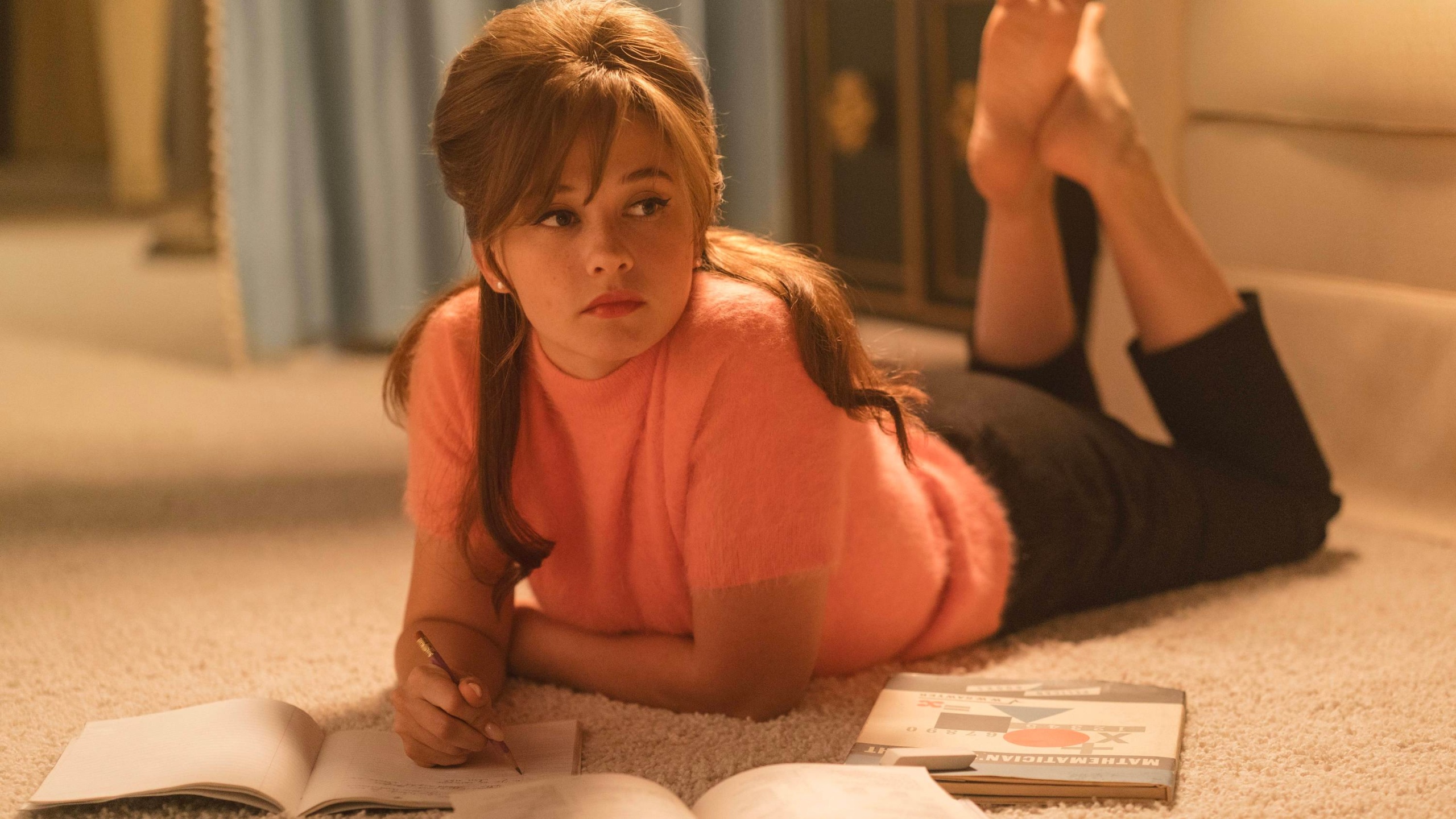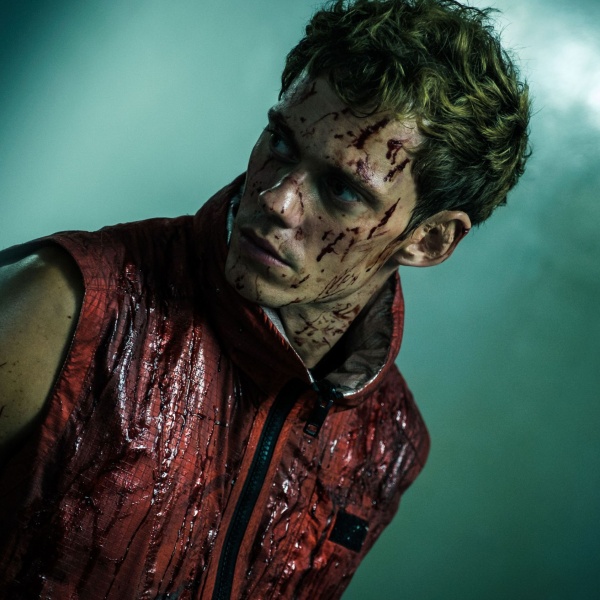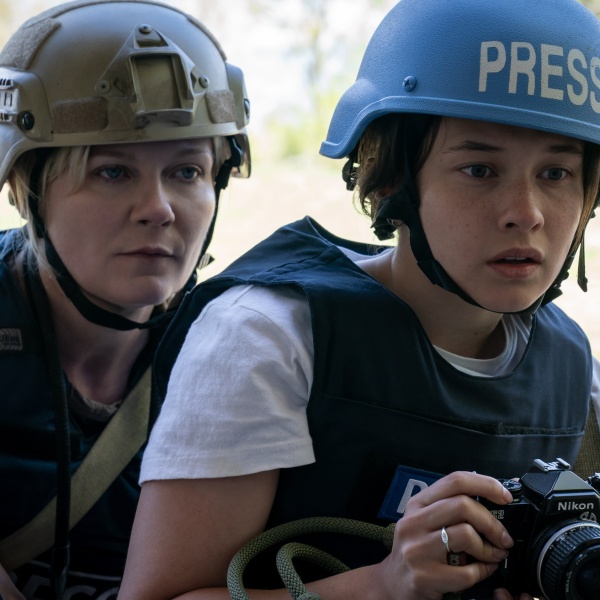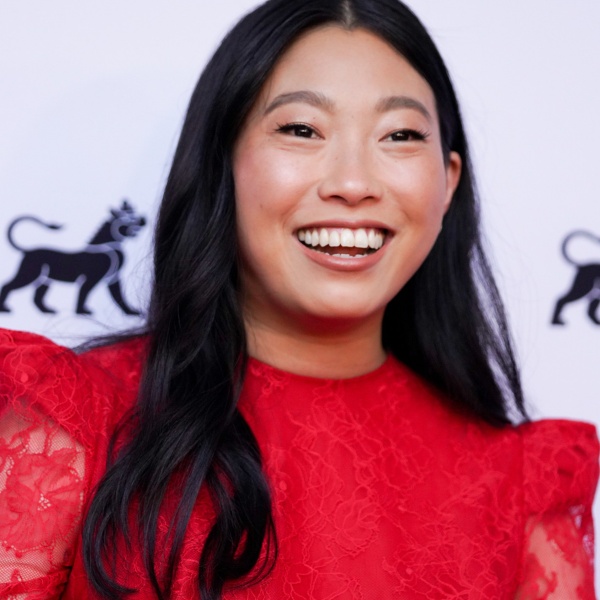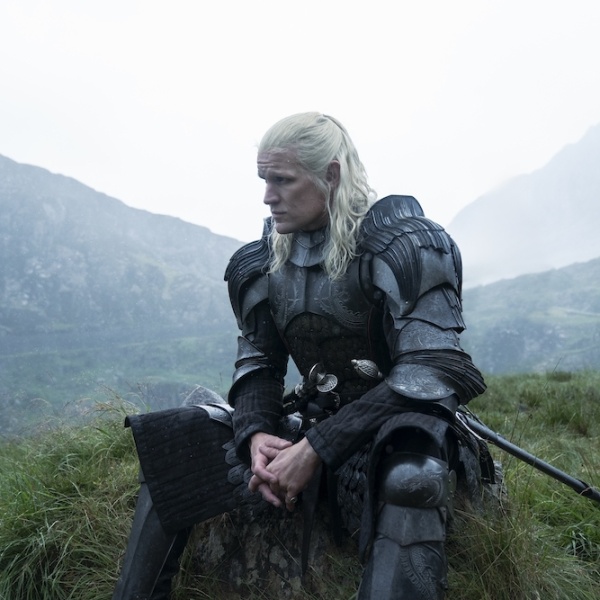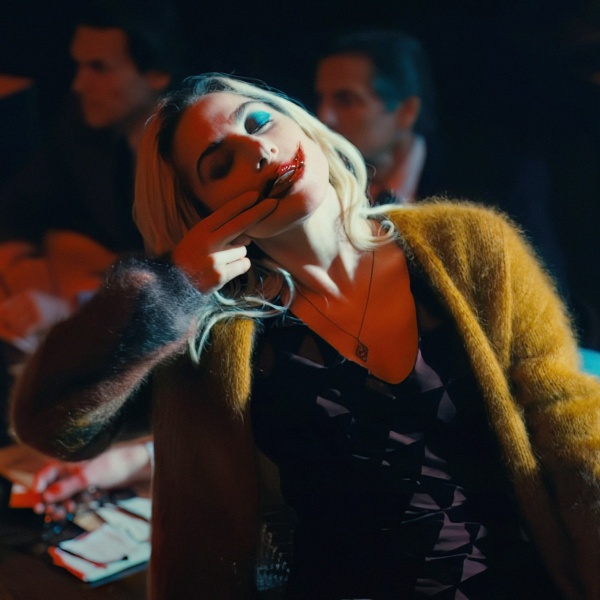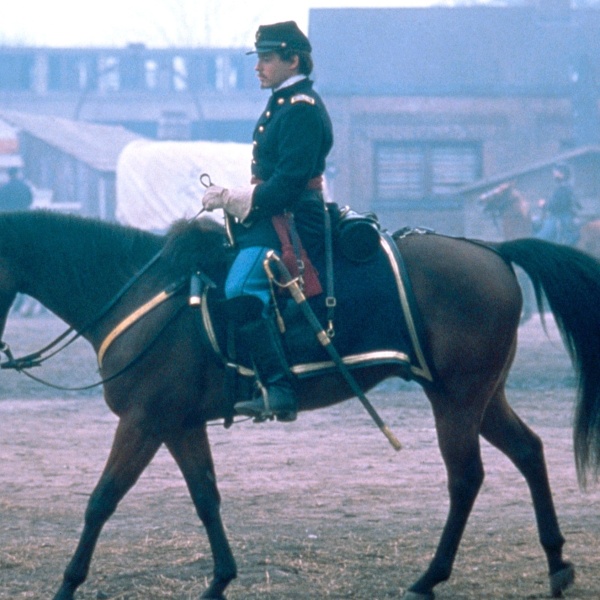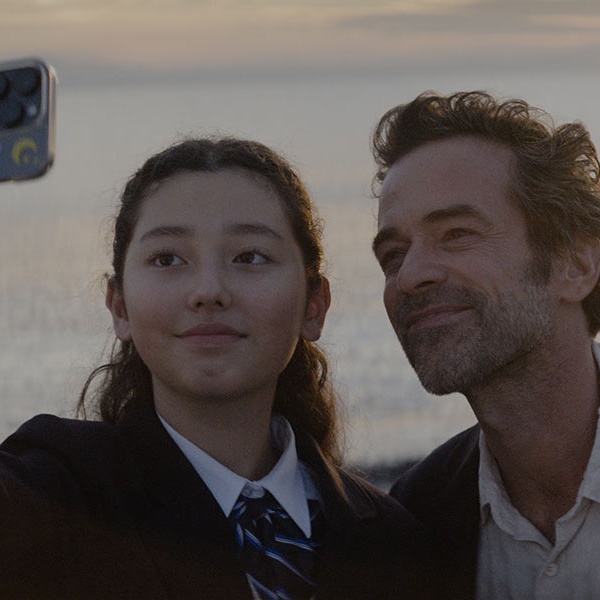Sofia Coppola’s creative team made two assumptions about the music of her film about Priscilla Presley that would prove wrong. While told from the emotional POV of Priscilla, there would be a need for a handful of Elvis tracks — but those were impossible to license. Coppola and her composer/husband Thomas Mars, whose band Phoenix has written original music for several of her films, also assumed “Priscilla” would rely more on an original score.
“Thomas and the band were initially focused on what we were going to do with the score moments in the film,” Coppola’s longtime music supervisor Randall Poster told IndieWire. “It very quickly went from something we thought we were going to record an original score to curating a score. That was what was unique to this movie.”
The shift meant Phoenix would join Poster as co-music supervisor, and together, they would find the 51 pieces of licensed music that make up the “Priscilla” soundtrack. Below, Mars and Poster break down some of the key musical moments and the creative decisions behind them.
-
Opening Credits: Alice Coltrane & the Ramones

Image Credit: Sabrina Lantos/A24 While a good percentage of the soundtrack is period-accurate, the film opens in 1959 with the anachronistic energy of one of the iconic ‘70s punk bands, the Ramones, singing the Ronettes’ ‘60s classic “Baby, I Love You. “We were using songs to both reinforce this moment in time, but also having music that transcends the moment in time,” said Poster. “Kicking off the movie with the Ramones opened us up to a lot of possibilities and liberated our musical palette.”
Mars, who curates playlists for Coppola while writing her films, said it was a track the writer/director always loved and even wrote into the script. Referencing their collaboration on “Marie Antoinette,” the 18th-century costume film that featured New Wave bands like New Order, the choice is nothing new. “I think what’s most vital about her sensibility is the instinct to match music and emotion, regardless of era.”
Early in the post-production, Coppola and editor Sarah Flack had liked both Alice Coltrane’s “Going Home” and “Baby, I Love You” in the opening. Mars explained, “We had them separately and both worked, and Branco [Laurent Brancowitz] from my band had the idea for a junction, where we can start with Alice Coltrane and then we can turn it into the Ramones. That was very satisfying to have both.” Afterwards, Mars said he ended up feeling a little guilty for the breakthrough: “I had just doubled the music budget of the opening credits.”
It was here, on a film that was especially cash-strapped, that having the pre-eminent music supervisor of his generation on the team was invaluable. “I just threw everything into making sure that Sofia got what she wanted and what she felt she needed,” said Poster of working within the film’s budget. “Just using whatever leverage or coercion I could use that have people support us and work within a certain framework. In the end, it wasn’t any one song was so expensive, but the cost of licensing 51 tracks.”
-
“Venus”: Do You Want to Meet Elvis?

Image Credit: Sabrina Lantos/A24 The film opens with 14-year-old Priscilla in a diner. Alone and stuck in Germany where her stepfather is stationed, she is startled out of her boredom by an invitation by a solider to come to Elvis Presley’s house for a party.
Frankie Avalon’s “Venus” captures the magical, walking-on-a-cloud feeling Priscilla experiences. The song was referenced in Priscilla’s autobiography, “Elvis and Me: The True Story of the Love Between Priscilla Presley and the King of Rock N’ Roll” and Coppola had always intended to use it, but its importance would grow, eventually serving as the film’s musical theme, and reprised at key moments throughout the film — a glockenspiel version marks the birth of Lisa Marie Presley.
A majority of these moments in which “Venus” is brought back in score-like fashion were arranged and performed by the band Sons of Raphael. Dating back to when Mars thought the film would be more score-orientated, he was drawn to the music of Sons of Raphael, which was touring with Phoenix. “Their stems are incredible,” said Mars. “We asked them, ‘Can we use your stems and we’ll build something from there [for the score].” As their music worked well with the film, Mars started to see a connection between the band’s chord progressions and “Venus,” and the two increasingly start to meld into the film’s score-like theme.
-
“Crimson and Clover”: First Kiss Bliss

Image Credit: Sabrina Lantos/A24 After her second trip to Elvis’ house, Priscilla has another can-this-be-happening-to-me moment when they kiss. Tommy James & The Shondells’ “Crimson and Clover” captures her daydream-like state as she re-enters the ordinary routine of being a ninth grader.
“[The song] was written because Tommy James opened his window, and he saw a great field with two great colors, crimson and clover, and he just needed to express this,” said Mars. “That’s the most romantic, impressionistic thing, and fits with Sofia’s world really well, because that’s how she makes movies too.”
Mars and Coppola have wanted to use the song for years and contemplated it for a commercial she directed. “The song works on anything,” said Mars, adding they kept in their back pocket for the perfect cinematic moment. While shooting Priscilla practically floating through her high school locker banks, cinematographer Philippe Le Sourd played the track on a speaker. “Philippe has a great love for music, and his work and approach is very musical, and the camera and music become one.”
-
“Aura Lea”: Waiting Two Years for Elvis to Call

Image Credit: Sabrina Lantos/A24 After Elvis finishes his military service and returns to life as a rock star, he goes two years without writing or calling Priscilla. During a montage, the teenager pines for the rock star, listening to his comeback album and reading about his latest romantic escapades.
A slowed-down piano version of “Aura Lea,” arranged by Phoenix, captures how time has crawled to a halt for the heartbroken Priscilla. This scene was originally edited to Elvis’ “Are You Lonesome Tonight?,” which “worked and played really well in the scene, but we couldn’t get [the rights to the song],” explained Mars. While Poster and Mars agree the film ultimately benefitted from the creative challenge, this was one of two key moments they needed to evoke The King.
A creative solution was found with an inventive use of music in the public domain. According to Mars, Elvis’ “Love Me Tender” is based on “Aura Lea,” written by W.W. Fosdick and George R. Poulton. The melody lines are identical, so if you take away the words they sound the same, and because “Aura Lea” is in the public domain, “You can play it, and as long as you don’t hear the words, no one’s gonna come say get rid of this, but you have the spirit of Elvis.”
-
“How You Satisfy Me”: Entering Elvis’ World

Image Credit: Sabrina Lantos/A24 Once Elvis finally calls and Priscilla flies out to Graceland for the first time, the film shifts gears with “How You Satisfy Me,” by Spectrum. “I always wanted to use [this track], it had a huge impact on me when I was a teenager,” said Mars. “It has one of the best intros of all time, and so when we were looking for something to express the fun decadence of what it is to be invited to Elvis’s world [it worked perfectly].”
-
“The Crystal Cat”: Hair Dye, Bumper Cars, & Fireworks

Image Credit: sabrina lantos/A24 Elvis takes Priscilla shopping and, in not too subtle fashion, reshapes her look to suit him. When he instructs her to dye her hair black, the electronic buzz of Dan Deacon’s 2007 “The Crystal Cat” kicks off another incredible Coppola and Flack montage as a trip to the hair salon rolls into a night of bumper cars, fireworks, and youthful exuberance.
“They’re kind of like high school kids going on bumper cars, and I think makes their romance really palpable,” said Poster, who added the Deacon needle drop is his current (it can be different tomorrow) favorite in the film. “You really do think, ‘Wow, he’s really falling in love with this girl,’ and how can he not.”
-
Wedding: What Was Playing in the Presley House

Image Credit: Philippe Le Sourd Another flavor of music in “Priscilla” is based on Mars’ research into what music was playing at the Presley house at the time of the film. He found an article about all the albums that were found after Elvis died, but he was suspicious many were unopened, guessing, “I’m sure Elvis got a lot of swag he didn’t really want.” At one point during research for the script, he asked Coppola to ask Priscilla and others.
What he discovered is there was a large mix of music, including gospel, Hawaiian, calypso, soul, and Christmas, and they worked it into the background of scenes, almost as source music. A good example of this eclectic mix is the use of “Gassenhauer” by Erik Charleston and “Rippling Waters” by Speedy West, which play during the couple’s Graceland wedding.
-
“I Will Always Love You”: Priscilla Leaves

Image Credit: Courtesy of A24 Dolly Parton’s lyrics serve as Priscilla’s inner monologue as she leaves Graceland for the last time. The first chorus swells as the gates open, Priscilla takes a deep breath to brace herself for this life-altering decision. Moments later the second chorus underscore her triumph as she drives away from Graceland, and the film cuts to black. The song is a perfect ending, but, according to Poster, the backstory makes it resonate that much more.
“Priscilla and Dolly are friendly, and she recalls that song in her memoir,” said Poster. “Dolly sent it to Elvis for him to record, [but] they wouldn’t let Elvis record it unless she sold them the rights to the song, and she wouldn’t do it. I think that’s where Dolly’s experience is a bit of a reflection of Priscilla’s experience.”
